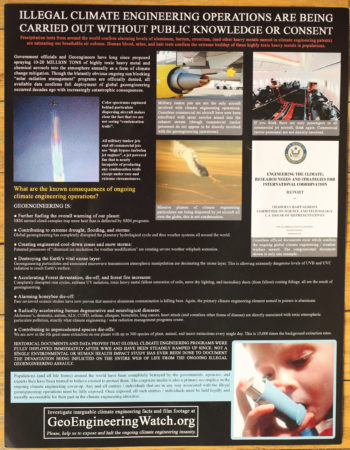Both in the literature on fossil fuel divestment and when speaking with divestment activists the concept or worldview of “climate justice” is prominent. A good example is Jessica Grady-Benson and Brinda Sarathy’s paper “Fossil fuel divestment in US higher education: student-led organising for climate justice“. They contend that climate change is increasingly seen as a social justice issue.
As I understand it, the key features of the “climate justice” perspective are the view that climate change is not a distinguishable issue that can be isolated from others like unjust power differentials, poverty, or racism. That analysis helps produce a program of action that emphasizes intersectionality: the efforts of those in one justice-based struggle to assist those involved in others, even if the immediate connection between say, maternal health in low-income countries and environmental policy in European municipalities or conditions in American prisons, is obscure. The conceptual motivation connects to both networking and political pragmatism, through the hope that social movements can be mutually reinforcing and therefore that alliances between climate change activists and those advocating for racial or economic justice will help everyone achieve their policy goals.
This climate justice terminology is comparatively new. In a post back in 2007 I used the term to refer to the question of the fair international distribution of burdens in addressing climate change: a perspective much more along the lines of institutionalist liberal environmentalism which basically accepts the existing order of the world and seeks to make the institutions that already hold power change their behaviour for the sake of their collective longer-term interests.
The liberal environmentalist account sees problems like climate change as techinical, scientific, and with the potential to be solved within existing institutions. Climate change is an unfortunate accidental product of fossil fuel energy that doesn’t automatically carry any moral lessons beyond that. British Comedian David Mitchell has a ‘soapbox’ talk describing this view succinctly.
One relevant consideration concerns motivation. Even if I accept it intellectually, Mitchell’s portrayal of climate change as an accident that nonetheless obligates a response may lack the emotional heft needed to actually produce a change in behaviour. Another key issue is the need to not only adopt decarbonization policies but to maintain them for long enough (decades) to avoid the worst possible climate change effects. Arguably, this requires a political consensus that extends beyond the left or progressives and, in fact, a political program that demands agreement on every progressive cause risks being alienating and ineffectual rather than a path to solidarity and success.
All these questions are intensely contested, and certainly cannot be resolved in a blog post or subsequent comments. On the one hand, the case that climate change is interwoven with other issues of injustice is highly convincing; it’s because some people are privileged over others that it’s so easy to allow unfettered fossil fuel use for the benefits it provides to the privileged while ignoring the harms it imposes on the marginalized, non-human nature, and future generations. It’s also plausible that the climate change movement needs to forge and maintain strategic alliances to succeed. In the end, we can’t know in advance what will work because we have never faced a problem like this before. We may never have the opportunity to do so again, since a sufficiently bad failure on climate change carries the risk of making all other human political projects moot. As such it seems obligatory to me to open up and maintain multiple paths to success, including those that require reaching beyond comfortable networks of people who broadly agree and solutions that consist of behaviours that we largely see as desirable anyhow. Stopping catastrophic climate change will mean giving up a lot, not only in terms of personal comforts and indulgences, but also in terms of comfortable political associations and worldviews.


